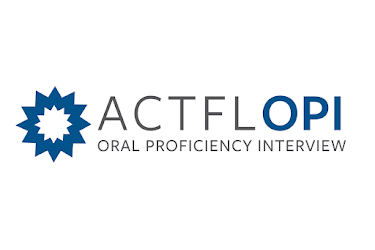The OPI exam (Oral Proficiency Interview) is an essential language test for those seeking to prove their spoken language skills. It’s widely used in academic settings, professional fields, and immigration processes. If you’re planning to study abroad or looking for job opportunities that require proficiency in a foreign language, the OPI exam can be a critical step in your journey. In this blog, we’ll explore what you can expect from the exam and how you can prepare effectively, especially with the help of overseas education consultants.
What is the OPI Exam?
The OPI exam is an interview-based test that assesses your spoken language skills. It is designed to measure your ability to communicate in real-world scenarios. Unlike written tests, the OPI focuses exclusively on your verbal communication skills, making it an essential tool for language learners.
The test is conducted by a certified examiner who engages you in a conversation. The interview can be done in person or via telephone, depending on the circumstances. The goal is to evaluate your fluency, accuracy, vocabulary, and ability to handle different conversation topics. Overseas education consultants often recommend the OPI for students applying to international programs that require oral proficiency.
What to Expect in the OPI Exam?
The OPI exam is divided into several stages, each designed to gauge your speaking ability across various levels. Here’s what you can expect:
Warm-Up: The examiner will start with simple questions to make you feel comfortable. You might be asked about your hobbies, daily activities, or interests. This part helps ease you into the conversation.
Level Checks: As the conversation progresses, the examiner will gradually increase the complexity of the topics. You may be asked to discuss more abstract subjects like politics, culture, or current events. This allows the examiner to assess your ability to handle higher-level conversations.
Role Play: One unique aspect of the OPI exam is the role-play section, where you’ll be given a scenario and asked to respond as if you were in that situation. This could involve negotiating a price at a market, explaining a problem to a customer service agent, or giving directions.
Wind Down: The interview ends with a brief wind-down phase, where the examiner will ask simpler questions again. This helps conclude the conversation naturally and provides an opportunity for the examiner to assess your overall fluency.
Overseas education consultants can provide detailed guidance on what to expect during the test, ensuring that you are well-prepared.
How to Prepare for the OPI Exam
Know the Format: Familiarize yourself with the exam’s structure. Understanding the different stages of the OPI exam will help you know what to expect and reduce anxiety. Overseas education consultants can provide you with sample questions and scenarios to practice.
Practice Speaking Regularly: The best way to prepare for the OPI exam is to practice speaking in the target language as much as possible. Engage in conversations with native speakers, join language exchange groups, or even practice by talking to yourself. The more you speak, the more comfortable you’ll become.
Use Real-Life Scenarios: Since the OPI exam focuses on your ability to communicate in real-world situations, it’s essential to practice scenarios that mimic those you might encounter in the test. Practice role-playing with a friend, or work with a tutor who can challenge you with different topics.
Work with Overseas Education Consultants: Overseas education consultants are experts in preparing students for language proficiency tests like the OPI exam. They can help you identify your strengths and weaknesses, provide targeted practice, and give you feedback to improve your speaking skills.
Listen to Native Speakers: Listening to native speakers can significantly enhance your comprehension and help you mimic natural speech patterns. Watch videos, listen to podcasts, or follow conversations in your target language. Study abroad experiences can also be helpful, as they immerse you in a language-rich environment.
Stay Calm and Confident: Confidence is key when taking the OPI exam. The test is designed to assess your ability to communicate, not just your grammar or vocabulary. Focus on expressing yourself clearly, even if you make mistakes. Overseas education consultants often advise students to stay calm and approach the test like a regular conversation.
Conclusion
The OPI exam is a unique test that evaluates your spoken language abilities in real-world situations. Preparing for it requires consistent practice, familiarity with the test structure, and guidance from overseas education consultants. Whether you plan to study abroad or enhance your career prospects, the OPI exam can be a vital step in showcasing your language proficiency. Start preparing early, practice regularly, and approach the test with confidence—you’ll be on your way to success.




